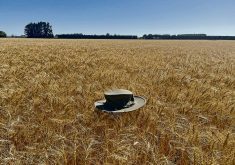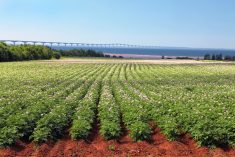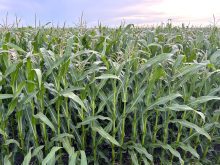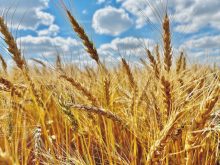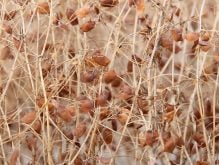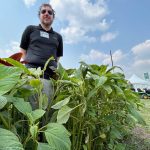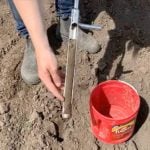Canada’s canola oil and meal will remain safe to consume even if some jimsonweed seeds end up in it, according to Curtis Rempel, vice-president of crop production and innovation at the Canola Council of Canada (CCC).
“While jimsonweed itself can be poisonous, the heating process in canola oil and meal processing denatures toxic alkaloids, so there isn’t a health concern in processed canola products,” Rempel said in a news release Sept. 4.
“It’s also important to remember that it’s the dose that makes the poison, and the high LD50 (lethal dose) of scopolamine, the major toxic alkaloid in jimsonweed, even further supports the fact that this weed isn’t a concern in canola oil or meal.”
Read Also
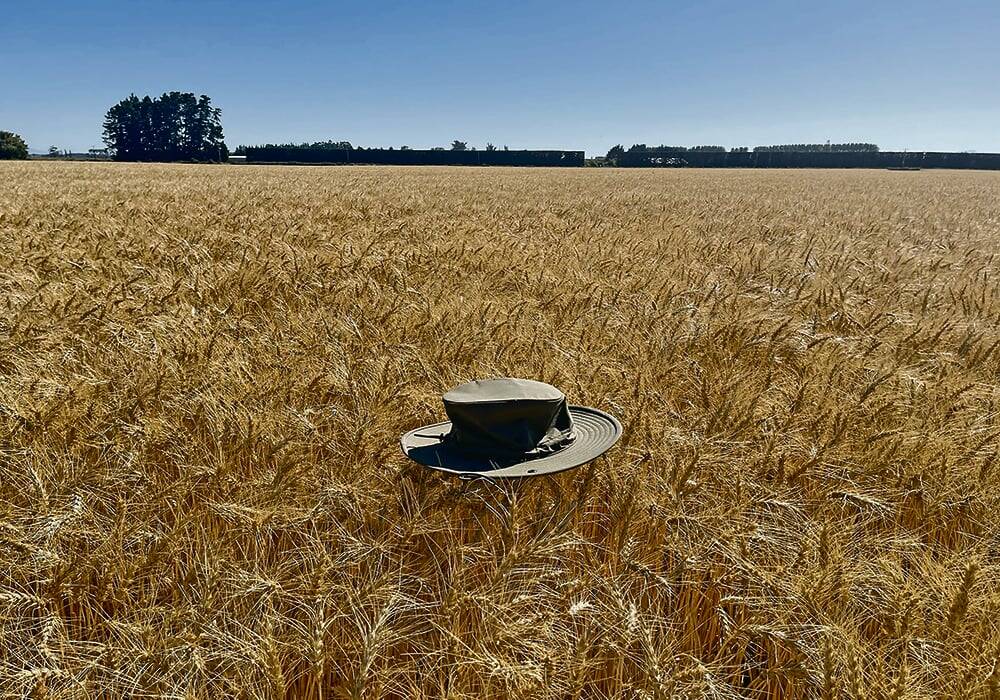
Resignation of Saskatchewan wheat breeder draws concern
Stakeholders say they hope the government will replace wheat breeder Richard Cuthbert, who has resigned effective the end of this month.
Rempel was reacting to published reports last week that jimsonweed (Datura stramonium), also known as locoweed, devil’s trumpet, pricklyburr and devil’s cucumber, was found in three canola fields in Alberta. All parts of the plant, which is in the nightshade family, are toxic and can kill livestock and humans if consumed in high enough quantities.
Jimsonweed is a common ornamental in parts of the Prairies and Eastern Canada, and grows all over the U.S., Rempel said.
Jimsonweed occurs in the warmer parts of southern Ontario in cultivated fields and around farmyards, according to Agriculture and Agri-Food Canada’s WeedInfo.ca.
It’s also found occasionally in Manitoba sometimes in crops, but also in wild areas and along river banks, said Jeanette Gaultier, weed specialist with Manitoba Agriculture, Food and Rural Development in Carman.
“Jimsonweed is known here (in Manitoba), but it’s not common,” she said.
While it’s on Manitoba’s noxious weed list, jimsonweed is not seen as an aggressive weed that threatens to reduce crop yields, she added. It can be controlled by several herbicides.
While jimsonweed is currently listed as one of the 21 prohibited noxious weeds on the federal weed seeds order, the Canadian Food Inspection Agency (CFIA) has proposed re-classification from prohibited to primary because it is already found in many parts of the country, the Canola Council said.
“According to provincial weed specialists in Alberta, as of Sept. 1 this weed has been limited to three fields of canola and all of these growers are working with their provincial departments and the CFIA on an eradication strategy,” Rempel said.
“We are currently focusing on fact-gathering and analysis on the weed’s prevalence and biology, and collaborating throughout the canola value chain to determine best management practices.
“To help, we are asking growers and agronomists to continue to keep an eye out for this weed during harvest as early detection is an important step in management.”
If jimsonweed is suspected, growers are advised to contact a provincial weed specialist or Canola Council agronomist to help with identification and discuss containment and eradication strategies.
Jimsonweed was found around Edmonton, in Alberta’s Westlock, Barrhead and Leduc counties, in late August while farmers were swathing canola, a published report said.
While Alberta is a major producer of canola seed, raising the spectre of spreading the weed, canola seed production is restricted to the southern part of the province.
Paul Thiel, Bayer CropScience’s vice-president of innovation and public affairs in Calgary, said the company, which produces canola seed, is vigilant in keeping weed seeds out meeting and exceeding CFIA requirements.
“We’ve been in touch with Alberta Agriculture on this and are continuing to investigate,” he said. “We’ll work with stakeholders to ensure this doesn’t become a major weed.”
— Allan Dawson is a reporter for the Manitoba Co-operator at Miami, Man. Follow him at @allanreporter on Twitter.




